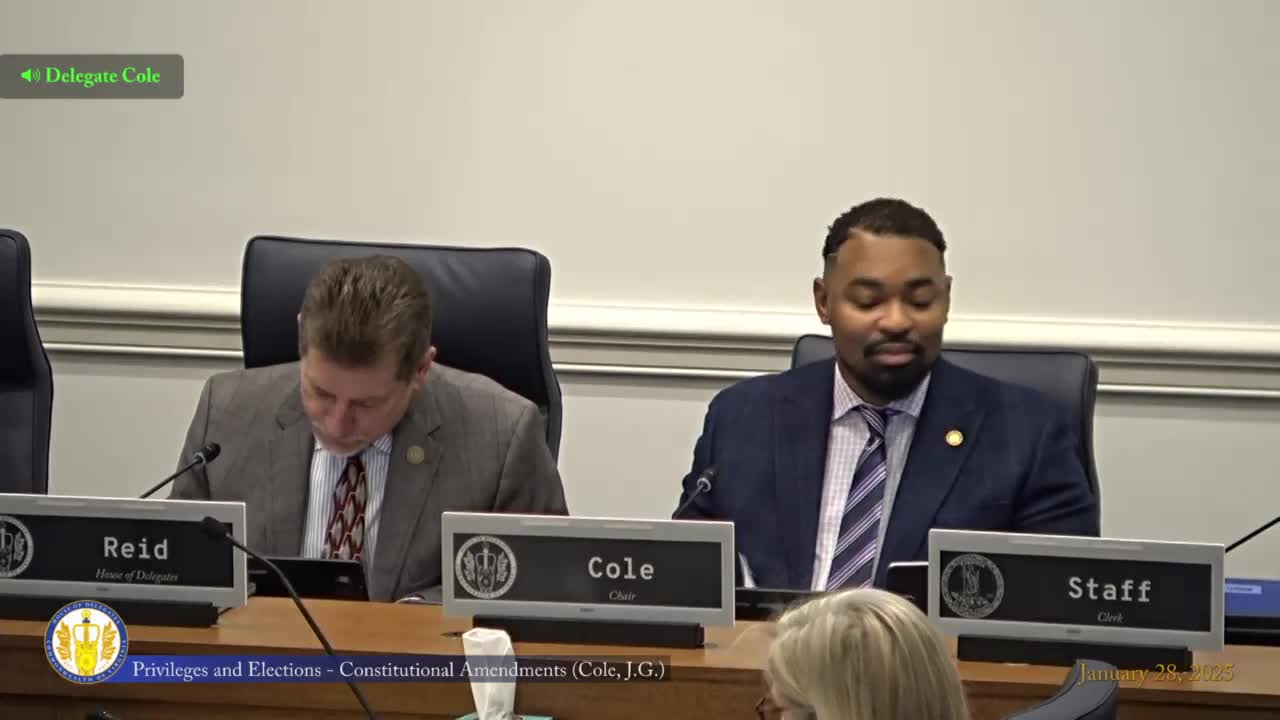Subcommittee tables proposed ‘food choice’ constitutional amendment after divided testimony
Get AI-powered insights, summaries, and transcripts
Subscribe
Summary
The House Privileges and Elections constitutional amendment subcommittee tabled House Joint Resolution 452, which would add a constitutional right to acquire food “from the source of their choice,” after public testimony that split small producers and consumer advocates from agriculture and food-safety groups. The motion to table passed 5–3.
The House Privileges and Elections constitutional amendment subcommittee at its first meeting heard hours of testimony and voted 5–3 to table House Joint Resolution 452, a proposed constitutional amendment that would add a right “to acquire food of their choice from the source of their choice with mutual consent.”
Sponsor Delia Freitas, the bill’s patron, told the committee the amendment was intended to establish a broad, constitutional principle protecting people’s ability to buy, grow or raise food and trade it by mutual consent. “What this would do is it would add, to section 15B food choice to the Virginia Constitution that the right of the people to acquire food of their choice from the source of their choice with mutual consent shall not be infringed,” Freitas said.
Supporters — including small-scale producers and consumers — said the amendment would protect access to minimally processed and locally produced foods and give buyers legal assurance when purchasing directly from farmers. Garrett Bridal of Orchard Hill Farm said the change “doesn’t really change the system that I’m working underneath, the cottage food laws, but it really does open up for the consumer to find what they’re looking for, where they’re looking for. And it gives them a little bit of emotional and legal security.” Several commenters described health or dietary needs that led them to seek direct purchases from producers.
Agribusiness and commodity groups voiced strong opposition, saying the amendment could undermine Virginia’s current inspection and food-safety framework. Jake Taber of the Virginia Farm Bureau said the organization opposed the resolution because it “could jeopardize the current inspection and food safety framework that we think currently exists and helps instill consumer confidence in our farm products.” Jim Riddell of the Virginia Cattlemen’s Association similarly told the committee, “We need to prioritize food safety and food security to our consumers, and we have guardrails in place at this time that do that.”
Other testimony included a medical and public-health framing: a commentator cited Centers for Disease Control and Prevention figures while urging greater access to whole foods, and multiple consumers described disabilities or health problems they said required access to specific foods.
Committee members debated the scope of a one-sentence constitutional change and whether the matter should be handled in statute. Delegate David Reid moved to lay the resolution on the table; the clerk recorded the motion as adopted on a roll call vote of 5–3. The clerk also reported the committee had received “numerous written comment over 10 pages, in both support and opposition,” and six people had been registered to testify online.
The tabling vote pauses consideration; the committee did not adopt any alternative language or refer the measure to another committee at the meeting.
